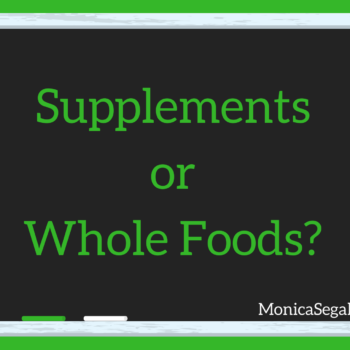Our preference when formulating diets is to get as many of the required nutrients from foods but the reality is there are many situations where supplements may be needed.
▶️Some dogs simply can’t tolerate the actual foods that provide the needed vitamins or minerals. Salmon and sardines provide vitamin D and EPA/DHA but many dogs can’t tolerate fish, simply don’t like it or won’t eat it consistently.
▶️ Some dogs can’t eat enough food to get the needed nutrients or they’ll gain weight, others simply won’t eat enough food. Even with a personalized, nutrient dense diet, picky dogs and easy keepers are usually candidates for supplements.
▶️Other dogs can’t tolerate the amounts of the nutrient dense foods or there are loose stools and digestive upset. Liver is a great source of copper but many dogs get loose stools if fed the amounts required. High quality organ meats are not always accessible to people. And, in our experience many dog owners simply don’t want to handle liver. In these cases, a small amount of a copper supplement -using NRC as a guide and considering the overall diet- ensures nutrient requirements are met.
*B Vitamins play an integral role in a vast array of important functions such as cognitive support, taurine and carnitine synthesis, energy, appetite, and skin health. Although B vitamins can be found in many foods, getting the amounts required daily can be difficult. Because of the critical roles these water-soluble vitamins play, we believe a daily supplement is warranted.
*Taurine amounts in foods are variable and it is affected by heat and freezing. There are many unknowns with taurine and the relation to DCM, thus Monica has been supplementing taurine conservatively and proactively for over 15 years. We continue to recommend this inexpensive, safe supplement be fed daily.
**Remember** a varied whole food diet doesn’t ensure nutrient requirements are met.

